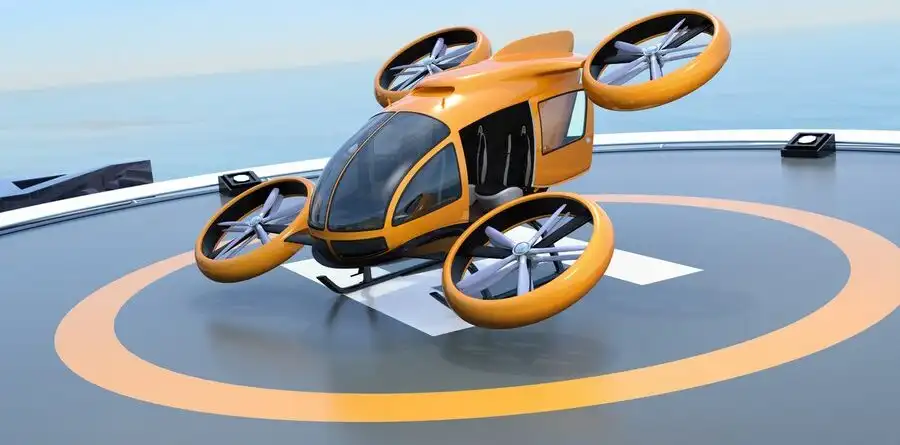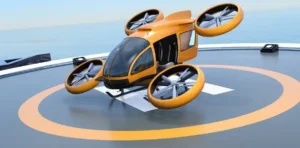The FAA wants to know: What safety and design features should be required at U.S. vertiports servicing electric vertical takeoff and landing (eVTOL) air taxis?
The agency essentially posed the question to airport owners and operators on Twitter on Tuesday in the form of an FAA draft document that takes a deep dive into various design and safety factors surrounding this emerging new form of transportation.
OEMs and eVTOL operators want to develop vertiports at existing airports—and in some cases—modify “existing on-airport helicopter landing facilities,” the FAA draft says.
It’s a reminder of how young and nascent the eVTOL industry is as it works to develop and certify small, battery-powered air taxis intended to fly short distances over traffic-congested city streets and highways.
In fact, a few major U.S. air carriers have already signed provisional purchase agreements with eVTOL companies that plan to manufacture their advanced air mobility (AAM) air taxis, once the aircraft obtain proper certifications. Many of these agreements have been made based on the business model that eVTOL air taxis would be used to transport passengers to and from urban airports, where they would access airliners for long-distance travel.
Air taxi developers Archer Aviation and Joby Aviation have said they intend to develop a network of vertiports in multiple cities, once they begin offering flights. Last year, Archer signed a $1 billion eVTOL purchase agreement with United Airlines. Both eVTOL companies say they expect to enter service in 2024.
The document suggests that air taxi companies would share vertiports at airport locations. “All federally obligated airport sponsors are required to ensure the safety, efficiency, and utility of the airport and to provide reasonable and not unjustly discriminatory access to all aeronautical users,” the FAA draft document says.
In fact, safety and security issues comprise a significant portion of the document.
TSA Security
Experts have long wondered how vertiports would handle required passenger screening by TSA officers, as well as how that process would affect customer experience.
“… Transportation Security Administration regulations may require that a screening area and/or screening be provided before passengers enter the airport’s secured areas,” the document says. “If necessary, airports should establish multiple VTOL parking positions and/or locations in the terminal area to service VTOL passenger screening and/or cargo needs.”
Fire Safety
The document discusses mitigation of the potential for vertiport fires. “The firefighting techniques for VTOL aircraft are still unknown and may differ from model to model,” the draft says. “Providing adequate fire protection for VTOL aircraft on vertiports will require a full understanding of the hazards related to the specific aircraft that will be using the vertiport. This also applies to the utility infrastructure needed to charge the VTOL aircraft.”
Aircraft Design Characteristics
As a reference point, the document was written using a set of common criteria integrating features of “nine VTOL aircraft currently in development,” the document says. Criteria of the aircraft include: electric batteries and distributed electric propulsion, two or more propulsive units, MTOW of 7,000 pounds or less, and an aircraft length and width of 50 feet by 50 feet. It also assumes an onboard pilot flying under VFR. According to the draft, downwash and outwash must be considered to ensure no endangerment to people or property.
The FAA is asking for comments on the draft document by April 18.

